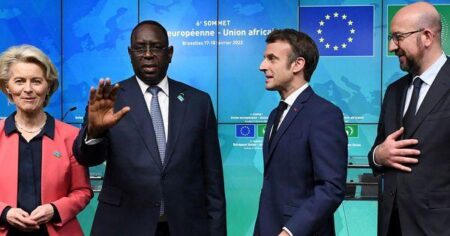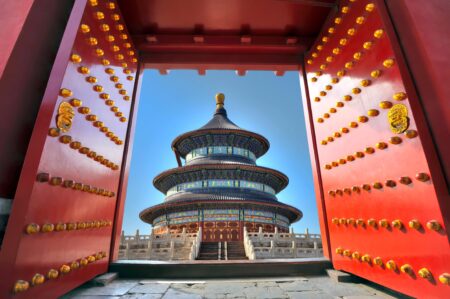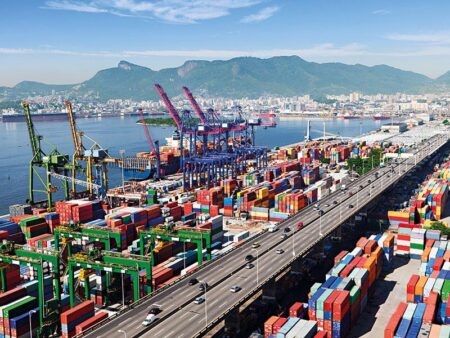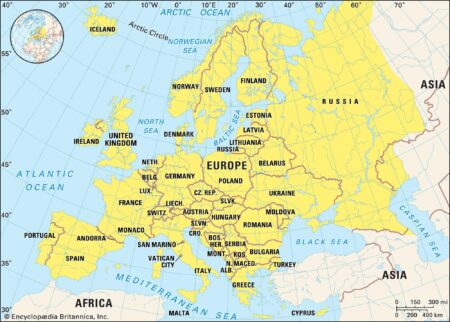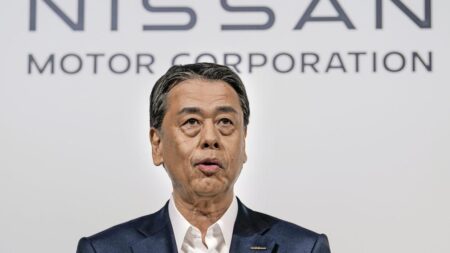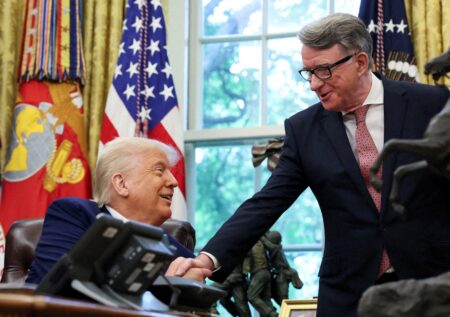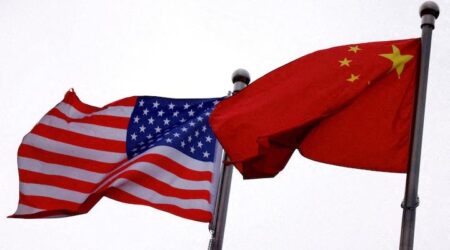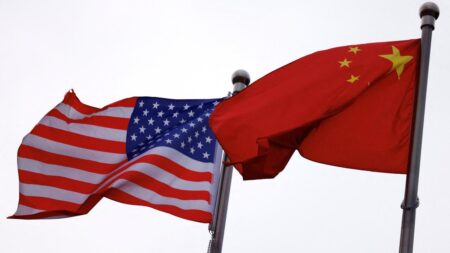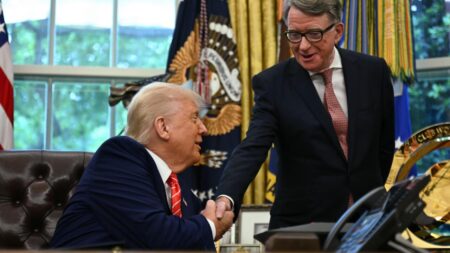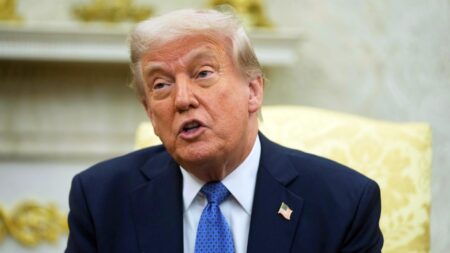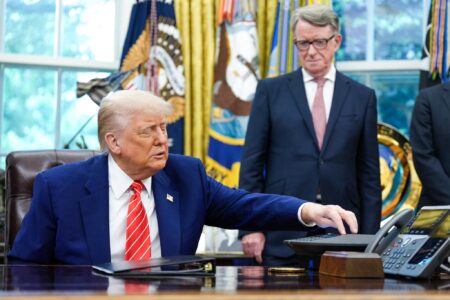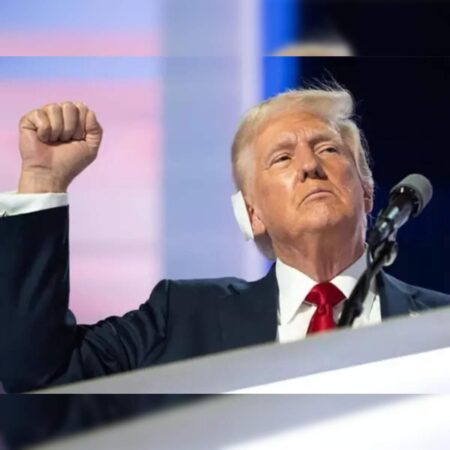In a pivotal gathering in Canada, G7 finance leaders came together to tackle the pressing issue of non-tariff barriers, seeking a cohesive strategy amidst escalating global trade tensions. Yet, the path forward may be fraught with challenges, as U.S. officials are likely to prioritize their own domestic interests, potentially complicating these crucial discussions.
Browsing: trade agreements
On May 19, 2025, a historic summit brought together leaders from the European Union and the United Kingdom, signaling a transformative chapter in post-Brexit relations. The agenda buzzed with vital discussions on trade, security, and collaboration, showcasing a renewed dedication to mending and strengthening their bonds.
Beijing is basking in the glow of a strategic triumph with the recent truce on U.S. tariffs, signaling a hopeful thaw in trade tensions. As both nations take a moment to reevaluate their economic strategies, China is poised to bolster its standing in global markets while nurturing robust domestic growth.
Brazil and China are embarking on exciting trade discussions focused on boosting sustainability. By harnessing their agricultural prowess and cutting-edge technological innovations, these two nations are poised to harmonize economic growth with environmental objectives, paving the way for a new era of global cooperation.
Europe is at a critical crossroads, facing urgent calls to revamp its economic strategies or risk being reduced to a mere “shock absorber” in the intensifying US-China trade war. Analysts are sounding the alarm, warning that failure to act could leave the continent not only economically vulnerable but also politically sidelined in this global power struggle.
Nissan CEO Makoto Uchida is urging a swift resolution to trade negotiations between Japan and the U.S., stressing the importance of creating a more favorable business landscape in the face of escalating global competition. Uchida’s comments underscore the critical need to bolster bilateral relations for mutual growth.
Japan’s Prime Minister Shigeru Ishiba has passionately renewed his call for the complete removal of tariffs between Japan and the United States, championing a stronger trade alliance. His comments emerge during pivotal discussions aimed at enhancing economic cooperation between the two nations.
The recent U.K. trade deal has sparked a wave of concern among American consumers, as critics voice their fears that it places corporate interests above the well-being of the public. Analysts are sounding the alarm, suggesting that this agreement may result in soaring prices and diminished regulatory safeguards for U.S. products.
Investors greeted the US-China tariff truce with enthusiasm, as the easing of trade tensions sparked a wave of optimism across global markets. Yet, analysts are sounding a note of caution, highlighting that the journey toward a comprehensive agreement is riddled with uncertainties. The ultimate outcome remains closely watched and open to interpretation.
In an exciting development, China is poised to boost its investments in Brazil by a staggering $27 billion, as revealed by President Lula. This strategic initiative is designed to fortify economic connections and elevate collaboration in key areas such as infrastructure and energy, marking a significant step towards a dynamic partnership.
As conversations heat up, the U.S. and U.K. are moving closer to sealing a robust trade deal. Central to these discussions are tariffs, digital trade, and agricultural standards—critical elements that both nations are eager to enhance in order to fortify their economic partnership in the wake of Brexit.
France has voiced its backing for a thorough review of the EU-Israel trade agreement in light of the intensifying violence in Gaza. This stance highlights the increasing apprehension regarding the humanitarian crisis unfolding in the region, prompting European nations to reevaluate their diplomatic relationships with Israel.
In a daring diplomatic maneuver, the USA has unveiled a provocative proposal to transfer Kaliningrad to Germany. This ambitious plan seeks to bolster regional stability and strengthen alliances amid escalating tensions, sparking intrigue and concern in both Berlin and Moscow.
President Trump declared a bold “total reset” in trade negotiations with China, highlighting the “great progress” made in discussions surrounding tariffs. These comments emerge amidst persistent trade tensions, as both nations strive to tackle deep-rooted economic challenges.
In a recent statement, Lutnick urged Japan and South Korea to brace themselves for a lengthy negotiation process. He highlighted the intricate nature of the issues involved, stressing that meaningful discussions are crucial for achieving sustainable solutions.
A recent trade agreement, hailed by the Trump administration, has come under fire as yet another “con on American workers.” Critics argue that this deal overlooks crucial labor rights and environmental protections, sparking serious doubts about its actual advantages for the economy.
Japan is currently at a crossroads in its tariff negotiations with the U.S., while the U.K. forges ahead with exciting new trade deals. As Tokyo navigates through mounting economic challenges, this pause in discussions could jeopardize Japan’s competitive advantage on the world stage.
Japan, China, South Korea, and ASEAN nations are coming together to fortify their regional financial safety net. This exciting collaboration is designed to boost economic stability and enhance resilience against potential financial crises, showcasing a powerful united front in the realm of economic governance.
As trade tensions rise, President Trump’s negotiations with China, Canada, Japan, and other pivotal nations hang in the balance. Although some talks hint at progress, deep-seated differences loom large, threatening to unravel potential agreements that are vital for the stability of global markets.
QatarEnergy is actively negotiating with Japan to establish a long-term liquefied natural gas (LNG) supply agreement, as revealed by exclusive insights from Reuters. This exciting potential deal highlights Qatar’s enduring significance in the global energy landscape

